The paladins of the great Charlemagne were the twelve knights, or the “Twelve Peers,” who moved through Europe fighting for king and “the good of men.” These twelve companions have also been associated throughout time with the Twelve Apostles of Jesus and the Twelve Knights of the Round Table. The palatinus were members of the Imperial Guard of Ancient Rome and were named after Palatine Hill, the mythical founding place of Rome. On the other hand, in Nazi Germany, Hermann Göring was also graced with the title “Paladin,” referring to a tradition of powerful titles that made the carrier second to the monarch.
The underlying common denominator for all of these incarnations of twelve organized warriors was the belief that their convictions were what kept them together and kept them strong. Paladins were almost always holy missionaries who intervened in the name of something bigger than their separate parts, almost always God or God’s emissaries on earth. 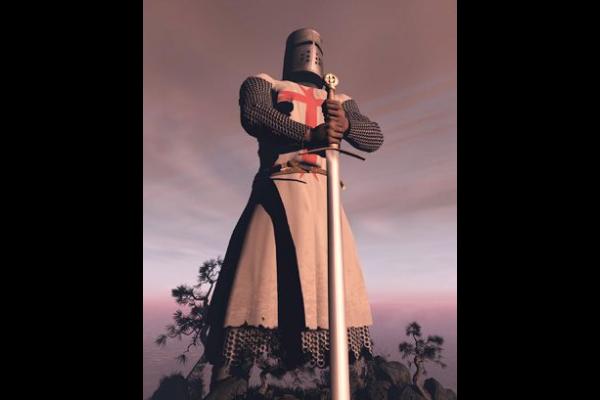
In the old days, these elite orders of men were powerful not simply due to their job description as handed down by king or pope, they drew power and prestige from the oath, the commitment and the communal belief that they were sworn to each other. The Knight’s Templars are an excellent example of a group of men sworn to protect Christianity during the Crusades who actually became more powerful after their original goal was achieved. The fact that they were banded together under a common belief and unified purpose made them so powerful that eventually the kings of Europe tried to eliminate them. The fact remained, however, that the common people of Europe believed that these Christian militiamen were holy crusaders long after the Crusades. Folks wanted to trust a group of semi-regular people who wore white and appeared to act in the interest of the common good!
In many ways, modern religion has gone the way of the Crusaders. Anyone can become a clergy person these days. Ideally, the person is “called” to the mission of spreading the Word, however one no longer needs to be able to read and write as the primary criteria for higher religious service. In fact, the past century has witnessed more democratization with respect to religious leaders than we have seen since the days of the Essenes and Gnostics. 
Thousands of Americans now find their way to a pulpit or a website (or blog for that matter) and assume the role of religious teacher, adviser, disseminator, mentor and for some, spiritual link to a higher power. For some of these lay clergy, there is little training and little guidance or support. Much like roaming spiritual teachers two thousand years ago, people have their own version of the “truth” and it is up to the average person to decide if they are a crackpot or a true beacon of light. Much like average people thousands of years ago, average people today are not so sure what to believe and are susceptible to the passions and persuasions of others who claim to have the ANSWER.
Essentially, the challenge is as old as organized religion: We have been conditioned over time to believe that the emissaries of religious doctrine and practice are somehow above or “specially” separate from the thoughts, feelings and personal motivations of “regular” folks. We expect them to think and act differently, because they are supposed to be different. Is this really the case?
We often look to religious leaders for insight and direction with regard to issues that we feel are somehow too challenging or uncomfortable to handle by ourselves, yet those who have chosen paths of spiritual leadership had to grow up with parents who said “no” like the rest of us. All of us wearing human skin carry with us human emotional baggage so it is fascinating to imagine that because someone embraces a full time religious life (usually with benefits) that they somehow do not also carry the same emotional challenges or longings.
As designated religious leaders, clergy of any faith are in a unique position to offer guidance that common folks might not normally feel open to explore or accept as viable. The religious mantle often adds a degree of gravitas to a decision or path that makes many people feel safer than had they come to the same determination on their own.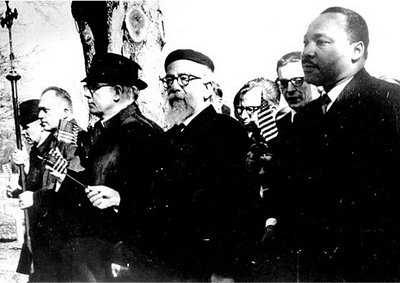
Rabbi Abraham Joshua Heschel suggested that “in order for religion to be viable anymore, it must be revolutionary.” I fully believe this to be the case now more than ever. Religious leaders volunteer to wear a mantle of dogma and faith therefore whatever they choose to do or not do is under close scrutiny by those of us who pay attention. Even non-believers pay attention to the ideas of religious leaders. A person may not agree with the perspective of a clergy person, but somehow their perspective seems to matter more than a non-clergy person because of the mantle.
I don’t think Heschel had knightly orders of armed rabbis in mind any more than an order of Templars. I do believe he envisioned a commitment for religious leaders to embrace social change, environmental integrity and social justice as the core of their spiritual work in the world. In fact, Heschel claimed he was “praying with his legs” as he marched alongside Dr. Martin Luther King, Jr. in Selma. People united for a common purpose are a force to be reckoned with…
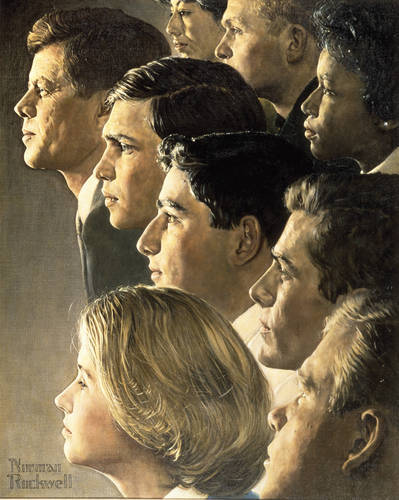 I hope that more people take the notion of socially conscious “paladinism” seriously as we move farther down the road of personal responsibility when it comes to finance, education, spirituality, and so forth. When a tragedy like the one this month in Tucson serves more to separate the “parts” of our democracy rather than unite us, I fear that there is nowhere near enough “praying with our legs” happening in our great nation.
I hope that more people take the notion of socially conscious “paladinism” seriously as we move farther down the road of personal responsibility when it comes to finance, education, spirituality, and so forth. When a tragedy like the one this month in Tucson serves more to separate the “parts” of our democracy rather than unite us, I fear that there is nowhere near enough “praying with our legs” happening in our great nation.
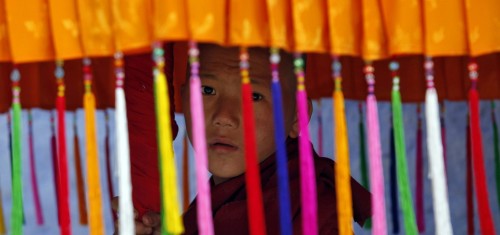


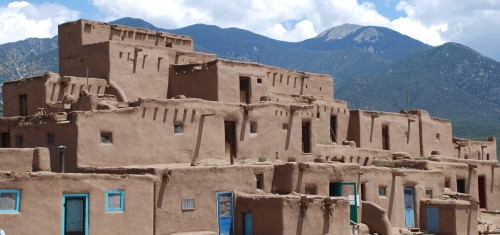
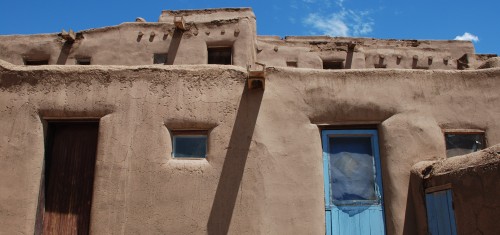
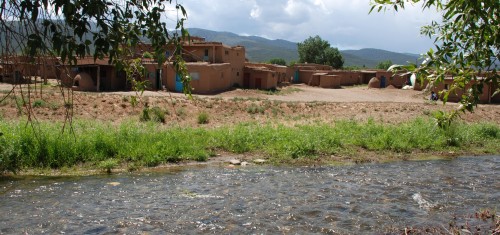

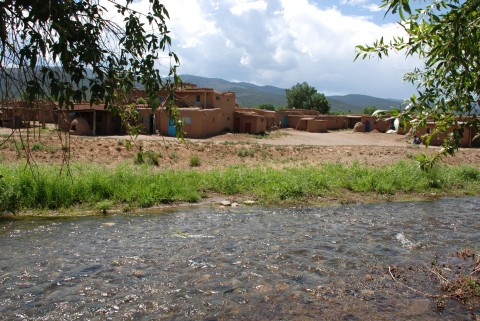 In his book Memories, Dreams and Reflections (which happens to be one of my very favorite books, ever) Jung suggested that his experience in New Mexico made him aware of his imprisonment “in the cultural consciousness of the white man.” As a man living in Chicago this week, I have to say that I feel somewhat imprisoned by some cultural consciousness as well.
In his book Memories, Dreams and Reflections (which happens to be one of my very favorite books, ever) Jung suggested that his experience in New Mexico made him aware of his imprisonment “in the cultural consciousness of the white man.” As a man living in Chicago this week, I have to say that I feel somewhat imprisoned by some cultural consciousness as well.  For the past several days, client after client has walked into my office and somewhere during the hour uttered the words, “
For the past several days, client after client has walked into my office and somewhere during the hour uttered the words, “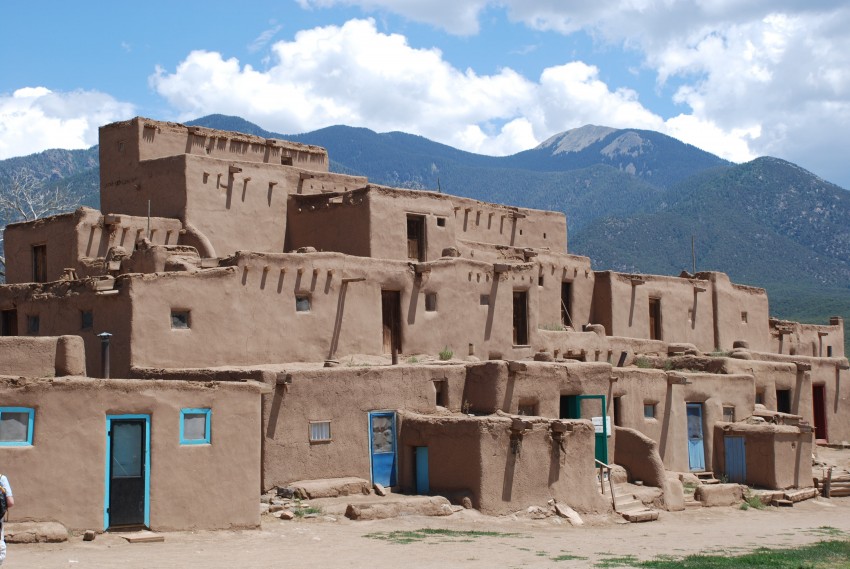 The Taos Pueblo is separated into two tiny, mud cities by a modest river that weaves down into the valley beneath a great mountain. One of the details that Dr. Jung found particularly significant was the fact that the pueblo’s natural separation by the river had created an ever so slight variation between the two sides of the village. In fact, when it came to engaging in rituals, hunting and even sporting events, the gentle designation of the two distinct teams created a friendly rivalry and competition that served as a projection for interpersonal tensions and aggression. Jung noted that as a result of this sometimes heated team rivalry, there was considerably less aggression, hostility and strife in people’s homes and in the whole tribal community.
The Taos Pueblo is separated into two tiny, mud cities by a modest river that weaves down into the valley beneath a great mountain. One of the details that Dr. Jung found particularly significant was the fact that the pueblo’s natural separation by the river had created an ever so slight variation between the two sides of the village. In fact, when it came to engaging in rituals, hunting and even sporting events, the gentle designation of the two distinct teams created a friendly rivalry and competition that served as a projection for interpersonal tensions and aggression. Jung noted that as a result of this sometimes heated team rivalry, there was considerably less aggression, hostility and strife in people’s homes and in the whole tribal community. 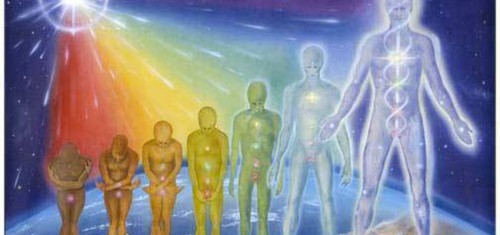
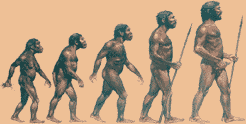 Human evolution, or anthropogeny, is the origin and evolution of Homo sapiens as a distinct species from other hominids, great apes and placental mammals. I have always appreciated the commonly known horizontal illustration of the evolution of “man” from stooped over simians to almost vertical sapiens. I believe we humans were brilliantly engineered as a species to adapt, grow and survive and while it is incomprehensible that our species could develop into anything but what we have become today, there is no logical reason to believe that we are done growing!
Human evolution, or anthropogeny, is the origin and evolution of Homo sapiens as a distinct species from other hominids, great apes and placental mammals. I have always appreciated the commonly known horizontal illustration of the evolution of “man” from stooped over simians to almost vertical sapiens. I believe we humans were brilliantly engineered as a species to adapt, grow and survive and while it is incomprehensible that our species could develop into anything but what we have become today, there is no logical reason to believe that we are done growing!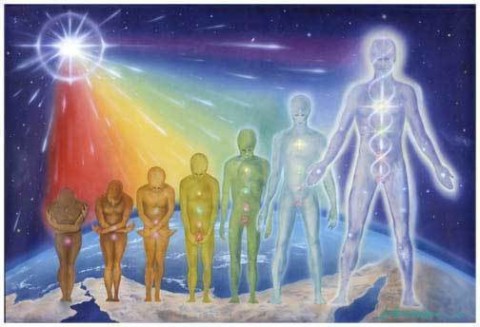
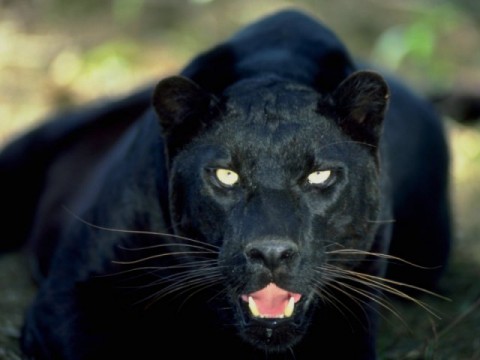 One need only observe a (rapidly diminishing) animal of prey to see the level of calm and equilibrium they exhibit when moving through the world. It would be unusual indeed to witness a panther (theroretically) who can’t execute dinner because of too much strain and stress, fear of failure or residual childhood trauma. Yet, for all of our development, knowledge and understanding about the world, we humans seem far less at peace with our essential selves than those animals who are arguably less “evolved.”
One need only observe a (rapidly diminishing) animal of prey to see the level of calm and equilibrium they exhibit when moving through the world. It would be unusual indeed to witness a panther (theroretically) who can’t execute dinner because of too much strain and stress, fear of failure or residual childhood trauma. Yet, for all of our development, knowledge and understanding about the world, we humans seem far less at peace with our essential selves than those animals who are arguably less “evolved.”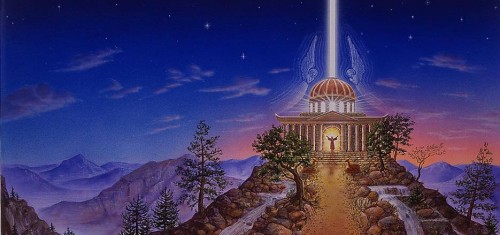

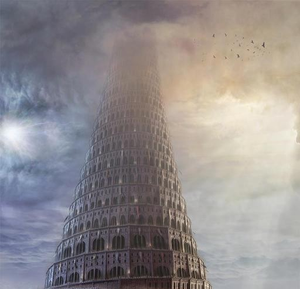 Today there are surely billions of people who are still concerned with their souls in the afterlife and who derive a sense of meaning from their respective religions or beliefs. Yet, I am unsure as to whether there is a unifying, universally coherent, common purpose for us all; something that draws us all together. Was the notion of the Tower of Babel (one of my favorite parables) merely about language or was there a deeper, existential notion of DIFFERENCE?
Today there are surely billions of people who are still concerned with their souls in the afterlife and who derive a sense of meaning from their respective religions or beliefs. Yet, I am unsure as to whether there is a unifying, universally coherent, common purpose for us all; something that draws us all together. Was the notion of the Tower of Babel (one of my favorite parables) merely about language or was there a deeper, existential notion of DIFFERENCE?

 Jeffrey Sumber is changing the world, one relationship at a time. For over two decades, Jeffrey has worked to understand the human experience from as many angles as possible. As a successful psychotherapist, marriage counselor, and life coach, Jeffrey has worked with thousands of clients who strive to live their best lives.
Jeffrey Sumber is changing the world, one relationship at a time. For over two decades, Jeffrey has worked to understand the human experience from as many angles as possible. As a successful psychotherapist, marriage counselor, and life coach, Jeffrey has worked with thousands of clients who strive to live their best lives.